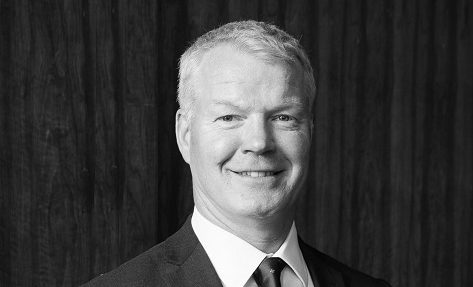
Inside my business: Roger Brosch of Foster Denovo
18.01.2018Roger Brosch, CEO of wealth manager Foster Denovo, tells Financial Planning Today about how the firm has grown, his business journey and his plans for the future of the company.
Roger Brosch’s business day
05.40 – Alarm and rise
06.30 – Arrive at gym for a 60 minute workout
08.30 – Arrive at office
10.00-12.00 – Executive team planning meetings
13.00 – One-to-one meetings with colleagues from across the business, for example with the head of recruitment, or with one of our equity partners
15.00 – Acquisition prospect meeting
17.00 – Business development meeting for either Secondsight (our employee benefits division), or our Private Client division
18.00-19.00 – Review and plan for the next day
‘Client centricity is at our core’
FP Today: What is your position at the company? When was it set up and what role did you play?
Roger Brosch: I am CEO of the Foster Denovo Group, a role I have been in since 2007 when we completed the MBO from the Tenet Group. I initially started as managing partner of Foster Denovo when the firm was first established in 2005.
FP Today: How did you get into the industry and wealth management?
RB: After completing my degree in business studies, I joined the graduate programme with Rothmans International. A good friend of mine was working for Financial Planning Services and General Assurance National (GAN). He made an introduction for me – where I joined in spring 1986. I progressed quickly, starting with my own client base, but then moving into management in the early 1990s, becoming a Regional Director in 1995.
FP Today: What sort of company is Foster Denovo? What services do you offer and do you specialise?
RB: Our business is built on values. These include our commitment to having a stakeholder culture, where our partners and staff work together to build and share in the value we create. We focus on finding and retaining people of similar values and attitudes, and invest in them in every way possible.
Client centricity is at our core, we provide propositions that are flexible and bespoke – whether cash flow modelling, or more transactional-based support. Our aim is to provide excellent value and to make a real difference.
We also place emphasis on training and development – to create a strong talent pipeline.
FP Today: How many clients do you have and what’s the annual turnover? What are your plans for expansion?
RB: We have a few thousand private clients retained on an ongoing basis, tens of thousands of transactional clients, and several hundred corporate clients and client numbers have grown strongly again this year. Our annual revenue is over £18m and we have bold expansion plans, aiming for consistent double digit organic growth year on year. We are actively seeking a number of good quality acquisitions and to support this strategy, we recently welcomed David Currie as our new chairman. His M&A experience makes him perfectly placed to guide the company during this critical expansion phase.
FP Today: You invested heavily in the RDR changes, did that mark a major turning point for the business?
RB: Yes it was a significant turning point for us and we have navigated the changes really well. As a result, we offer new client centric propositions – Quantum and Select, which have been well received both by clients and across the business.
In preparation for the changes, we launched Sequel Investments Limited in 2009 to provide a range of multi-asset, multi-strategy, and multi-manager investment funds to Foster Denovo Limited’s clients. It has since attracted over £200 million in funds under management into three growth and two income mandates.
FP Today: Foster Denovo is a big user of cash flow modelling. Why and should it be compulsory for all clients?
RB: We see cash flow modelling as integral to professional financial planning and our partners would find it hard to satisfy clients’ needs without a similar tool. In fact, we have gone so far as mandating it for clients on our Quantum service level. As a tool, cash flow modelling can be vital in helping clients to prepare for the latter stages of their life. It provides an individual view that is unique to the client, enabling their partner to really understand what is important and help them deliver the right advice solution. Naturally too there are some cases where cash flow modelling may not be appropriate.
Read the full article on page 25 of the January-February issue of Financial Planning Today here.
Similar reading
 Press release
Roger Brosch discusses why no one in advice benefits from social media ‘mudslinging’
22.03.2024
Press release
Roger Brosch discusses why no one in advice benefits from social media ‘mudslinging’
22.03.2024

 Search
Search





